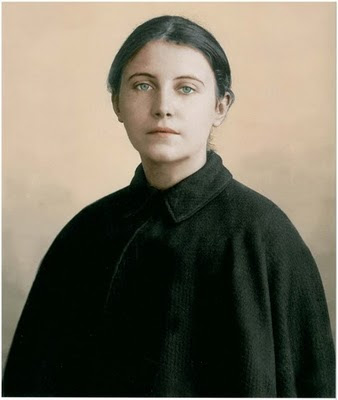
For Catholics, Episcopalians, and some Lutherans, March 17 is the Feast Day of St. Patrick. For the rest of us, it’s St. Patrick’s Day — a midweek excuse to party until we’re green in the face.
But who was Patrick? Did he really drive the snakes out of Ireland or use the shamrock to explain the Trinity? Why should this 5th-century priest be remembered on this day?
Q: Was St. Patrick a real guy, and would he approve of green beer?
A: Yes, Patrick was a real person, but not much is known of his life. He was born in the late 300s when the Roman Empire extended to England, so he was not “really” Irish — much like the vast majority of people who celebrate his day.
In his “Confessio,” one of only two surviving documents attributed to him, Patrick wrote that even though his father was a Christian deacon, he was not devout.
At age 16, Patrick was captured by Irish marauders, carried across the Irish Sea, and enslaved. He spent six years alone in the wilderness tending his master’s sheep, praying constantly. “It was among foreigners that it was seen how little I was,” he wrote.
ADVERTISEMENT
He began to have visions and hear voices that told him: “Look, your ship is ready.” So Patrick left his first flock and walked 200 miles to the coast. It’s a pretty safe bet he would have loved a beer, green or otherwise, as he stepped onto a boat bound for England.
Q: If Patrick was really British, how did he become so closely associated with the Irish?
A: Back in England, Patrick had a dream in which he heard the voice of the Irish he left behind say, “We beg you to come and walk among us once more.” Patrick took this as a sign and set out for a monastery in Gaul — that’s France today — where he began his religious education.
He became a priest, a deacon, and finally a bishop and returned to Ireland by his mid-40s. He created convents, monasteries, and bishoprics all over Ireland, confronted tyrannical kings, and converted hundreds of thousands of people. He was so popular that when he died on March 17 the late 400s — scholars aren’t sure exactly when — his followers waged a war for custody of his body.
Q: But what about the snakes? And the shamrock? And he wrote the prayer “St. Patrick’s Breastplate,” right?
A: No to all of the above. Patrick did not chase the snakes out of Ireland. As an island, Ireland never had snakes. But the story is probably a metaphor for Patrick’s driving out Druids and other forms of Irish paganism.
Related
The Leaning Tower of Pisa in Italy, floodlit green to celebrate St Patrick’s Day on Tuesday. Landmark buildings across Ireland and the world have been floodlit green as global celebrations of the Emerald Isle’s patron saint are culminating in parades and celebrations in Dublin and other cities, particularly in the U.S., on St. Patrick’s Day. (AP Photo/Sarto Roberto, Tourism Ireland)
Everyone’s Irish on St. Patrick’s Day
Texas Gov. Greg Abbott, right, talked with Irish Prime Minister Enda Kenny at the Governor’s Mansion in Austin, Texas, Sunday. (AP Photo/Austin American-Statesman, Ricardo B. Brazziell)
Talks to save Belfast power-sharing overshadow St. Pat’s Day
COMING THURSDAY: The Crux ‘Saints Madness’ brackets
More
And there’s no way of knowing whether Patrick picked up a three-leafed shamrock and used it to explain the Christian doctrine of God as Father, Son, and Holy Spirit. But it’s a nice story. And as for the prayer, it probably dates to the 7th or 8th century.
And here’s a fun fact: Patrick was sainted by a local bishop shortly after his death, not by the official saint-making mechanism of the Catholic Church, which was not yet in place. So no miracles were required for his sainthood. He was kind of grandfathered in.
Q: If he didn’t do any of those things, what did he do that would make him worthy of getting a whole day dedicated to him (plus a bunch of parades)?
A: Short answer: Patrick was a maverick, an iconoclast, a trailblazer. And though he was high born, he never forgot the naked shepherd boy, cold and hungry and huddling on an Irish hillside.
“The imagined Patrick to me is interesting as a cultural phenomenon, but not as a breathing man of faith,” said Philip Freeman, author of “St. Patrick of Ireland.” “He suffered terribly, was tormented by self-doubt, yet he always pressed forward to spread the Gospel.”
He was also the first Church father to speak out against the abuse of women, especially slaves. And at a time when Christian biggies like the Apostle Paul and St. Augustine never left the boundaries of the Roman Empire, Patrick was the first missionary to people considered barbarians.
In the words of Thomas Cahill, “The step he took was, in its way, as bold as Columbus’s, and a thousand times more humane.”
With thanks to cruxnow.com





![TiepoloGiambattistaDieUnbefleckteEmpfangnis17671768Drachen[Devil,Demon,Dragon]](https://i0.wp.com/spiritualdirection.com/blog/wp-content/uploads/2013/08/TiepoloGiambattistaDieUnbefleckteEmpfangnis17671768Drachen-380x262.jpg)




